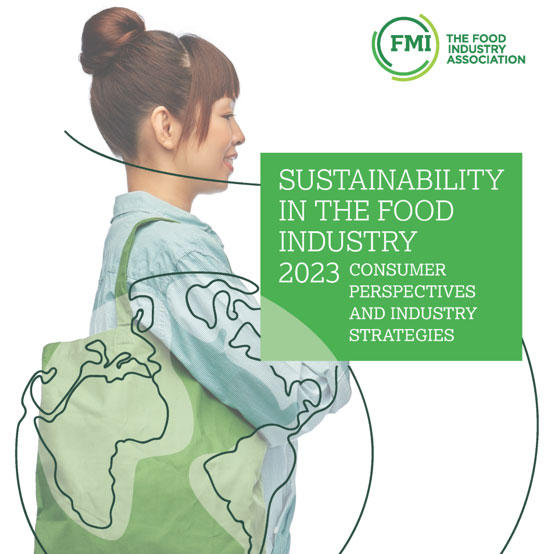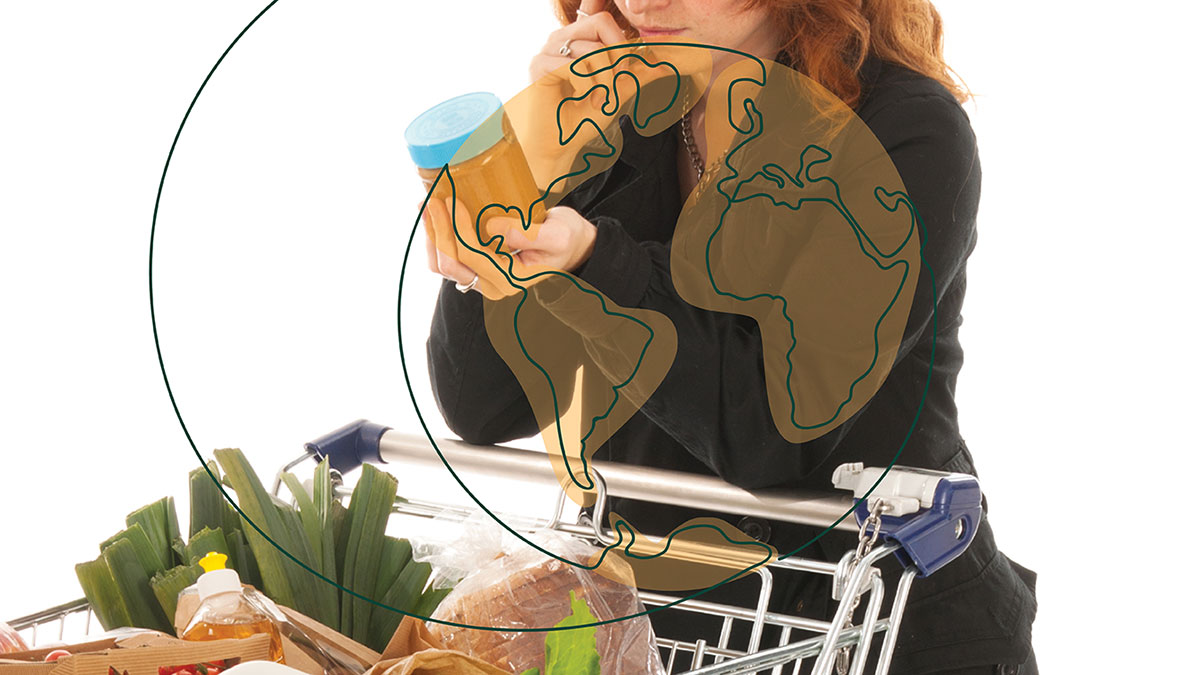By: Andrew Harig, Senior Director of Sustainability, Tax & Trade, Food Marketing Institute

The Guardian predicted that sustainability would have a tough time of it in 2016. Consumers were feeling less secure, the paper argued, which leads them to turn their focus inward. “With a drop-off in positive feedback direct from the market, corporate sustainability commitments will be much harder to justify in the short term…The sustainability bandwagon that’s been building for the last decade will begin to fall apart.”
Consumers were undoubtedly anxious in 2016, but the “sustainability bandwagon” kept rolling for food wholesalers and retailers. The industry’s commitment to creating sustainable supply chains and proactively engaging on a broad spectrum of corporate social responsibility (CSR) issues is ingrained in business operations; it has become part of corporate culture. FMI’s work on sustainability throughout 2016 mirrored this fact.
The year kicked off with an in-person meeting of the Sustainability Executive Committee (SEC) at FMI’s Arlington, VA offices. In addition to introducing the SEC to FMI’s leadership and holding an in-depth discussion of opportunities for collaboration on several multi-department projects, the group laid out an ambitious agenda for 2016 that contained a heavy focus on food waste.
No sustainability topic in recent memory has captured the attention of policymakers, NGOs and other activist groups in the way food waste did in 2016. Fortunately, the founding of the Food Waste Reduction Alliance (FWRA) in 2011 perfectly positioned FMI and its partners (the Grocery Manufacturers Association and the National Restaurant Association) to lead on this issue. FMI staff gave presentations on food waste in numerous forums this year, including the United Fresh Expo in Chicago, Harvard’s Food Law and Policy Clinic Save Food for People conference, and Feeding America’s National Food Rescue Summit. In addition, the FWRA (including representatives of FMI and FMI member companies) briefed both the House and Senate Agriculture Committees on the issue and our policy concerns. These efforts culminated in the release of FWRA’s Third Biennial Food Waste Assessment in November.
FMI also continues to partner with GMA to sponsor one of the most successful sustainability conferences put on by any industry. Held in August in New Orleans, the Global Sustainability Summit hosted sessions on topics ranging from sustainability in poultry supply chains in China to responding to CSR crises. As one attendee described this year’s event, “It brings all the right people to a single place for two days of intense collaboration.”
FMI is extremely grateful for the hard work our member companies put in to make our sustainability program a success. The most exciting part of the foundation this hard work created is that it sets the stage for an even more productive 2017.

 Industry Topics address your specific area of expertise with resources, reports, events and more.
Industry Topics address your specific area of expertise with resources, reports, events and more.
 Our Research covers consumer behavior and retail operation benchmarks so you can make informed business decisions.
Our Research covers consumer behavior and retail operation benchmarks so you can make informed business decisions.
 Events and Education including online and in-person help you advance your food retail career.
Events and Education including online and in-person help you advance your food retail career.
 Food Safety training, resources and guidance that help you create a company food safety culture.
Food Safety training, resources and guidance that help you create a company food safety culture.
 Government Affairs work — federal and state — on the latest food industry policy, regulatory and legislative issues.
Government Affairs work — federal and state — on the latest food industry policy, regulatory and legislative issues.
 Get Involved. From industry awards to newsletters and committees, these resources help you take advantage of your membership.
Get Involved. From industry awards to newsletters and committees, these resources help you take advantage of your membership.
 Best practices, guidance documents, infographics, signage and more for the food industry on the COVID-19 pandemic.
Best practices, guidance documents, infographics, signage and more for the food industry on the COVID-19 pandemic.
